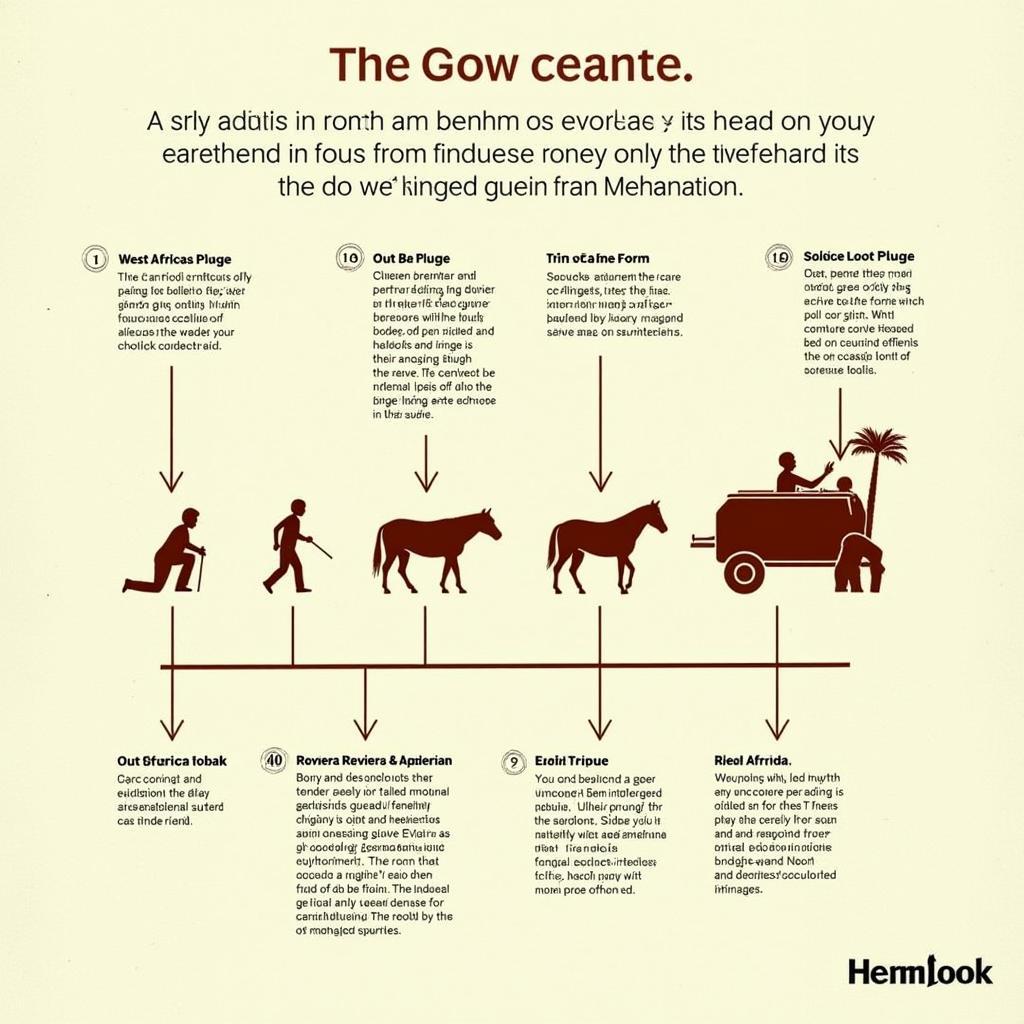Unveiling African Stories: Your Comprehensive Guide to African Cinema Syllabus
An African Cinema Syllabus serves as a captivating portal to the vibrant tapestry of storytelling, cultural expression, and historical narratives that define this diverse continent. Through a curated selection of films, documentaries, and cinematic masterpieces, students and enthusiasts alike can embark on an enlightening journey exploring the multifaceted realities and evolving narratives of Africa.
Delving into the Rich History and Evolution of African Cinema
African cinema did not emerge in a vacuum; it arose from a confluence of cultural, historical, and political forces. Early films often served as tools of colonial propaganda, but a new wave of filmmakers emerged post-independence, determined to reclaim their narratives. Pioneers like Ousmane Sembène (Senegal), Djibril Diop Mambéty (Senegal), and Med Hondo (Mauritania) used film to critique colonialism, celebrate African identity, and explore the complexities of modernization.
Key Movements and Genres
1. The Golden Age of African Cinema (1960s-1970s): This period saw a flourishing of filmmaking talent, particularly in West Africa. Films like “Black Girl” (1966) by Ousmane Sembène and “Touki Bouki” (1973) by Djibril Diop Mambéty tackled themes of neo-colonialism, identity, and disillusionment.
2. Women’s Voices in African Cinema: Women filmmakers have played a crucial role in diversifying African cinematic narratives. From Safi Faye’s groundbreaking “Letter from My Village” (1975) to Wanuri Kahiu’s contemporary masterpiece “Rafiki” (2018), women directors have challenged gender norms and given voice to marginalized communities.
3. The Rise of Nollywood and Other Regional Industries: Nigeria’s film industry, known as Nollywood, has exploded onto the global stage, becoming the second-largest film industry globally by output. Other regional industries, like those in Ghana, South Africa, and Kenya, also contribute significantly to the continent’s cinematic landscape.
 People gathered for an African film festival
People gathered for an African film festival
Essential Themes in African Cinema
African cinema is not a monolith but rather a mosaic of diverse perspectives and experiences. However, several recurring themes provide insights into the continent’s shared history, present-day realities, and future aspirations:
1. Colonialism and Post-Colonialism: Many African films grapple with the legacy of colonialism and its impact on identity, politics, and social structures.
2. Identity and Belonging: The search for identity is a central theme in African cinema, as characters navigate the complexities of tradition and modernity, rural and urban life, and individual aspirations within societal expectations.
3. Gender and Sexuality: African filmmakers have increasingly challenged traditional gender roles and explored diverse sexualities, often pushing boundaries and sparking social dialogue.
4. Migration and Diaspora: The experiences of migration, both within Africa and to other parts of the world, feature prominently in African cinema, highlighting the challenges and opportunities of displacement and cultural exchange.
5. Environmental Concerns: As climate change increasingly impacts the African continent, filmmakers are exploring themes of environmental degradation, conservation, and the interconnectedness of human and natural worlds.
Analyzing Cinematic Techniques and Styles
Beyond thematic exploration, an African cinema syllabus often delves into the unique cinematic techniques and styles employed by African filmmakers:
-
Oral Storytelling Traditions: The influence of oral storytelling traditions is evident in many African films, with their emphasis on narrative structure, symbolism, and the use of griots or storytellers as central characters.
-
Realism and Social Commentary: Neorealism, with its focus on social realism and the lives of ordinary people, has been a significant influence, particularly in early African cinema.
-
Magical Realism: This genre, which blends realistic narratives with fantastical elements, has resonated with many African filmmakers, allowing them to explore the spiritual and mystical aspects of their cultures.
-
Genre Bending and Experimentation: Contemporary African filmmakers are increasingly pushing boundaries, blending genres and experimenting with form and style.
 Students engaged in an African cinema class
Students engaged in an African cinema class
Creating Your Own African Cinema Syllabus
Designing an African cinema syllabus offers a rewarding opportunity to curate a diverse and impactful learning experience.
Here’s a step-by-step guide:
-
Define Your Scope: Determine the specific focus, time period, or region you want to cover.
-
Select Key Films: Choose a variety of films representing different genres, directors, and themes.
-
Incorporate Supplementary Materials: Include scholarly articles, film reviews, and interviews with filmmakers to provide context and critical perspectives.
-
Foster Discussion and Engagement: Encourage students to analyze films critically, share their interpretations, and connect cinematic themes to broader social and historical contexts.
Conclusion
An African cinema syllabus offers a powerful lens through which to engage with the rich cultural tapestry, historical complexities, and evolving narratives of the African continent. By exploring the diverse perspectives, cinematic techniques, and universal themes present in African films, students and cinephiles alike can gain a deeper understanding of Africa’s past, present, and future.
FAQ
1. What are some must-watch films for anyone new to African cinema?
Start with classics like “Black Girl” (1966), “Touki Bouki” (1973), and “Yeelen” (1987) to understand the foundations of African cinema. Then, explore contemporary films like “Timbuktu” (2014), “The Boy Who Harnessed the Wind” (2019), and “Atlantics” (2019) for a taste of the diverse narratives being told today.
2. Where can I find resources to help me learn more about African cinema?
Numerous online resources, film festivals, and academic institutions provide valuable information. Check out websites like the African Film Festival, Inc., the New York African Film Festival, and the Pan African Film Festival for schedules, film lists, and educational materials.
3. How can I support African filmmakers and the growth of African cinema?
Attend film festivals, seek out and watch African films, and engage in discussions about the films you’ve seen. Support organizations dedicated to promoting African cinema and amplifying the voices of African filmmakers.
For any inquiries or assistance regarding African Cinema, contact us at +255768904061, email us at kaka.mag@gmail.com, or visit our office at Mbarali DC Mawindi, Kangaga, Tanzania. Our dedicated team is available 24/7 to provide support and guidance.

